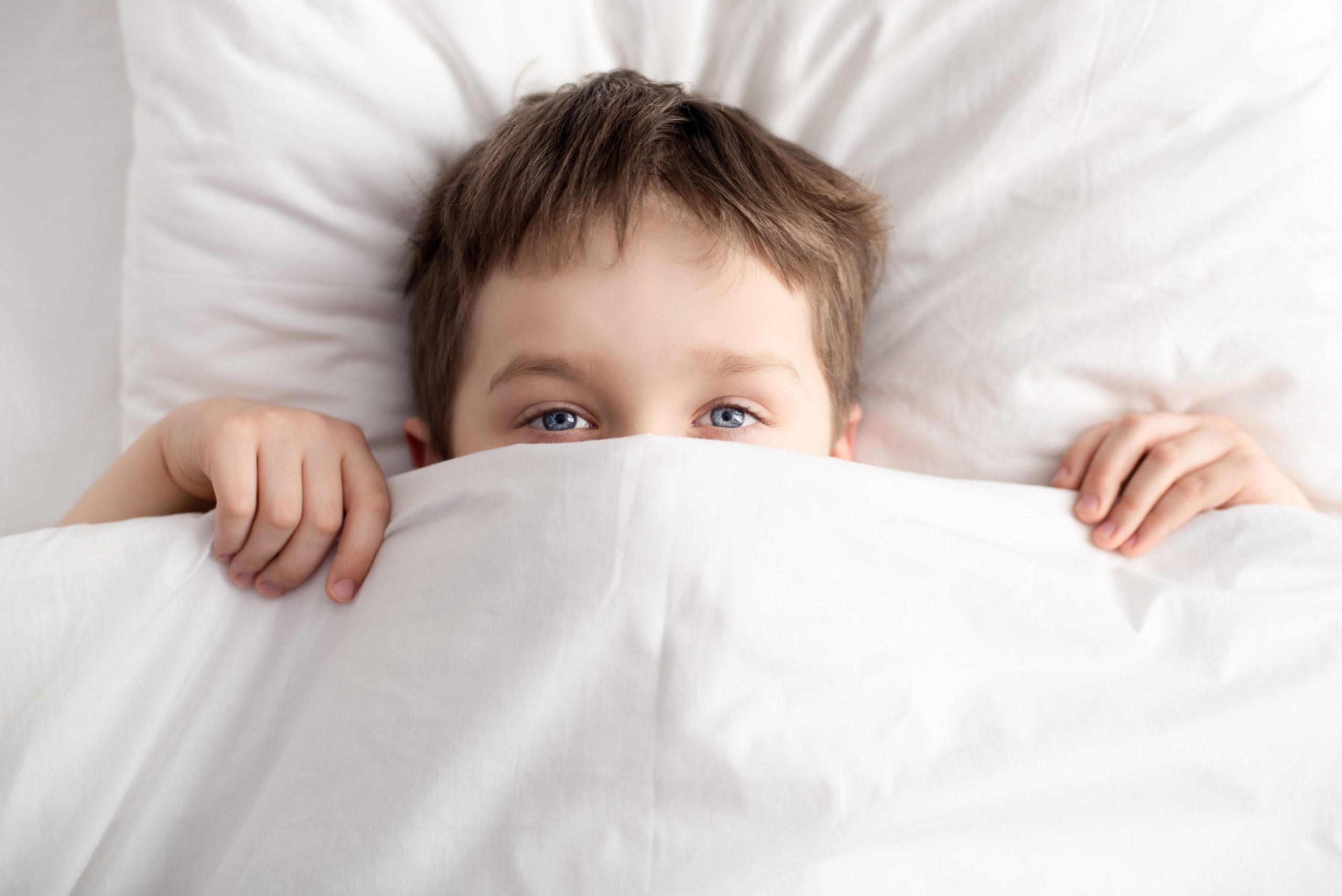Nightmares and night terrors can be scary experiences – for the child and the parents! Knowing the difference between the two will help you best know how to handle them and get your little one back into a peaceful sleep.
Nightmares
Nightmares occur during REM sleep (a.k.a. our dream sleep), which happens near the end of each sleep cycle. And as the night goes on, the amount of time we spend in REM increases. So although nightmares can happen throughout the night, they’re more common in the early morning hours.
When a child is having a nightmare, they’ll seek out comfort and recognize you when they see you. So, your child might cry out for mom or dad, or even show up in your room looking for you to comfort them. They’re able to remember the nightmare, but it may take some time to get the scary thoughts out of their mind and fall back asleep.
Nightmares are very common and are part of normal development. They usually start to show up around two or three years of age as a child’s memory gets longer, their imagination develops, and they have trouble distinguishing between reality and fantasy. Nightmares are also common after traumatic events as they re-live the scenario they experienced.
Here are some tips on how to handle nightmares:
When your child has a nightmare, respond quickly, acknowledge the fact that he had a nightmare and that he’s feeling scared, then assure him that he’s safe and offer some comfort. You might say something like, “You had a bad dream, and you feel scared. But the dream is over now and nothing bad can happen to you. I’m right here.”
Once your child has calmed down, kiss him goodnight and leave him to drift off to sleep again on his own.
Here are some tips to help reduce your child’s nightmares:
- Avoid scary movies, TV shows, books, etc., especially right before bedtime.
- Avoid playing scary games.
- Ensure your child’s getting enough sleep. Sleep deprivation can increase nightmares.
- Avoid high-dose vitamins at bedtime.
- Check with your pediatrician to make sure your child isn’t on any medications that might be interfering with his night sleep.
Night Terrors
Night terrors differ from nightmares in several ways.
When a child is experiencing a night terror they may scream and appear anxious and may not recognize you when you approach them. They may also be sweating and/or have a racing heartbeat. Oftentimes the child is inconsolable.
A night terror typically lasts between 5-15 minutes and are often more upsetting for the parents than they are for the child, as children don’t usually remember them.
Night terrors occur within about two hours of going to sleep, during non-REM stages of the sleep cycle. So, night terrors are not bad dreams because they do not occur during dream sleep. They’re also not a sign of a psychological problem.
Night terrors occur in 5% of all children and seem to be more common in boys. Your child’s more likely to have night terrors if either parent had them as a child or had any partial arousal sleep disorder such as sleepwalking. They can also be caused by sleep apnea or fevers, and sometimes occur when a child’s working on a new developmental milestone.
The most common cause of night terrors is sleep deprivation or disturbances in their sleep pattern – like a later bedtime or traveling to a different time zone.
Here are some tips on how to handle night terrors:
- During a night terror, make sure your child is physically safe. Monitor him but avoid interfering, as this can make the episode worse.
- Keep an early bedtime and a regular sleep schedule.
- Don’t talk about the night terror with your child in the morning. He probably won’t remember it and talking about it will just upset and/or embarrass him.
If your child’s having night terrors 2-3 times a week at fairly consistent times (i.e. 2 hours after going to sleep) try these tips:
- Keep a sleep log to chart your child’s sleep patterns.
- Go in 15 minutes before your child typically has an episode and lightly rouse him.
- Do this every night for 7-10 nights in a row and you’ll most likely see the episodes start to decline.
Once you determine whether it’s a nightmare or a night terror you’re dealing with, you’ll be better equipped to help your child recover and return to peaceful sleep.
Is chronic overtiredness the cause of your child’s nightmares or night terrors? Are you ready to help your little one get the peaceful sleep they need? Let’s chat. Book a free 15-minute call to learn how I can help.

